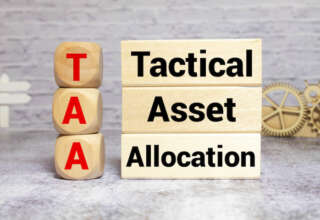
Understanding Property Taxes in Dallas
Dallas, Texas is a vibrant city known for its booming real estate market. As a homeowner or property owner in Dallas, you may be familiar with the annual property tax bill that arrives in your mailbox. Property taxes are a major source of revenue for local governments and play a crucial role in funding essential services such as schools, infrastructure, and public safety.
The Basics of Property Taxes
Property taxes are levied by local governments based on the assessed value of your property. The assessed value is determined by the county appraisal district, which evaluates the market value of your property. In Dallas, property taxes are calculated using the following formula:
(Assessed Value) x (Tax Rate) = Property Tax Amount
The tax rate is set by local government entities, including the county, city, school district, and other special districts. It is important to note that property tax rates can vary depending on your location within Dallas and the specific tax jurisdictions that apply to your property.
How Property Taxes are Calculated in Dallas
In Dallas, the assessed value of your property is determined by the Dallas Central Appraisal District (DCAD). The DCAD takes into account various factors such as the size, location, and condition of your property, as well as recent market trends in your neighborhood. They may also consider any improvements or renovations that have been made to the property.
Once the assessed value is determined, it is multiplied by the tax rate to calculate your property tax amount. The tax rate is expressed as a percentage of the assessed value and can vary from year to year.
It is worth noting that Texas has a cap on property tax increases known as the “homestead exemption.” This exemption limits the annual increase in the assessed value of a homeowner’s primary residence to no more than 10%. However, this cap does not apply to investment properties or second homes.
Common Misconceptions about Property Taxes
There are several common misconceptions about property taxes that often lead to confusion among homeowners:
- Property taxes are solely based on the market value of your property.
- Property tax rates are fixed and do not change.
- Appealing your property taxes will automatically result in a lower tax bill.
It is important to understand these misconceptions to make informed decisions when it comes to property tax appeals in Dallas.
Why Appeal Your Property Taxes?
Appealing your property taxes can have significant benefits, including:
The Benefits of Lowering Your Property Tax Burden
A lower property tax burden can lead to substantial savings each year. By successfully appealing your property taxes, you can reduce your monthly expenses and free up funds for other important financial goals. Lower property taxes are especially beneficial for homeowners on fixed incomes or those facing financial challenges.
When to Consider Filing a Property Tax Appeal
There are several situations where filing a property tax appeal may be advantageous:
- Your property has been over-assessed, leading to an unfairly high tax bill.
- Your property value has declined due to market conditions or other factors.
- You believe that your property tax assessment is not in line with similar properties in your neighborhood.
If you find yourself in any of these situations, it may be worth considering a property tax appeal to potentially lower your tax burden.
How a Successful Appeal Can Save You Money
A successful property tax appeal can result in significant savings over the long term. By reducing your assessed value or securing a lower tax rate, you can enjoy lower property tax bills for years to come. These savings can add up quickly and have a positive impact on your overall financial well-being.
Preparing for a Property Tax Appeal
Before filing a property tax appeal, it is essential to gather evidence and familiarize yourself with the appraisal process. Doing so can greatly increase your chances of success:
Gathering Evidence to Support Your Appeal
When preparing for a property tax appeal, gathering evidence to support your case is crucial. This evidence may include recent home appraisals, comparable sales data, photographs of your property, and any documentation of defects or necessary repairs. It is essential to present a strong case backed by compelling evidence to convince the appraisal review board.
The Importance of Understanding the Appraisal Process
Understanding the appraisal process is vital for a successful property tax appeal. Familiarize yourself with the criteria used by the appraisal district to determine property values and the factors they consider when assessing your property. This knowledge will help you identify any discrepancies or errors in the appraisal and present a more persuasive case.
Hiring a Professional Property Tax Consultant
While it is possible to navigate the property tax appeal process on your own, hiring a professional property tax consultant can greatly increase your chances of success. These consultants have expertise in property valuation, appraisal methods, and the appeals process. They can guide you through every step of the appeal, gather the necessary evidence, and present a compelling case on your behalf.
Navigating the Property Tax Appeal Process
Once you have gathered the evidence and are ready to proceed with your property tax appeal, it is important to understand the steps involved:
Filing a Formal Protest with the Appraisal Review Board
The first step in the property tax appeal process is filing a formal protest with the Appraisal Review Board (ARB). The ARB is an independent panel of citizens responsible for hearing property tax appeals. The protest must be filed within a specific timeframe, usually in May or June, depending on the county.
When filing a formal protest, clearly state the grounds for your appeal and include any supporting evidence you have collected. It is essential to follow the proper procedures and meet all filing deadlines to ensure your appeal is considered.
Presenting Your Case at the Formal Hearing
After filing a formal protest, you will be notified of a date and time for a formal hearing before the ARB. This hearing provides an opportunity to present your case and supporting evidence to the board. It is important to be prepared, organized, and confident when presenting your arguments.
During the hearing, you will have the opportunity to explain why you believe your property tax assessment is incorrect and present any evidence or documentation to support your claims. The ARB will carefully consider your arguments before making a decision.
Understanding the Appeals Decision and Next Steps
After presenting your case, the ARB will issue a decision regarding your property tax appeal. They may choose to uphold the original assessment, lower the assessed value, or adjust the tax rate. It is crucial to understand the appeals decision and next steps.
If your appeal is successful and the assessed value is lowered or the tax rate is adjusted, you will receive a revised tax bill reflecting the changes. If the decision is not in your favor, you may have the option to further appeal to an independent tax court or seek other avenues for resolution.
Property tax appeals in Dallas can be a complex and time-consuming process. However, with proper preparation, a strong case supported by evidence, and potentially the assistance of a professional property tax consultant, you can navigate the appeal process and potentially lower your property tax burden. By doing so, you can enjoy substantial savings and financial relief while ensuring that your property taxes are fair and equitable.
FAQ
Question: How are property taxes calculated in Dallas? – Property taxes in Dallas are calculated by multiplying the assessed value of the property by the tax rate, which is set by local government entities such as the county, city, school district, and special districts.
Question: Are property tax rates fixed or do they change? – Property tax rates can vary from year to year and are not fixed. They are determined by local government entities and may be adjusted based on various factors.
Question: What is the “homestead exemption” in Texas? – The “homestead exemption” is a cap on property tax increases for a homeowner’s primary residence, limiting the annual increase in assessed value to no more than 10%. This exemption does not apply to investment properties or second homes.
Question: How can appealing property taxes benefit homeowners? – Appealing property taxes can lead to significant savings by lowering the tax burden, freeing up funds for other financial goals. This is especially beneficial for homeowners on fixed incomes or those facing financial challenges.
Question: When should I consider filing a property tax appeal? – You may consider filing a property tax appeal if your property has been over-assessed, if its value has declined, or if you believe the assessment is not in line with similar properties in your neighborhood.
Question: What evidence should I gather to support my property tax appeal? – When preparing for a property tax appeal, gather evidence such as recent home appraisals, comparable sales data, photographs of the property, and documentation of defects or necessary repairs.
Question: Should I hire a professional property tax consultant? – While it is possible to navigate the property tax appeal process on your own, hiring a professional property tax consultant can greatly increase your chances of success. They have expertise in property valuation, appraisal methods, and the appeals process.
Question: What are the steps involved in the property tax appeal process? – The property tax appeal process involves filing a formal protest with the Appraisal Review Board (ARB), presenting your case at a formal hearing before the ARB, and understanding the appeals decision and next steps.
Useful Resources:
- Dallas Central Appraisal District – The official website of the Dallas Central Appraisal District, where you can find information about property assessments and the appraisal process in Dallas.
- Texas Comptroller of Public Accounts – Property Tax – The official website of the Texas Comptroller of Public Accounts, providing information and resources regarding property taxes in Texas.
- Politifact Texas – An article debunking common misconceptions about property taxes in Texas, including those specific to Dallas.
- Dallas Tax Office – The official website of the Dallas Tax Office, providing information about tax rates and payment options in Dallas.
- National Association of Realtors – A professional organization for real estate agents and professionals, offering resources and insights into the real estate market.
- Zillow – A popular real estate website that provides estimated property values and other market information for properties in Dallas.
- Harris County Appraisal District – Although not specific to Dallas, this website provides information on property assessment and the appeal process that can be applicable to Dallas as well.
- Nolo – A legal website that explains what a property tax appeal is and provides general guidance on how to appeal property taxes.














